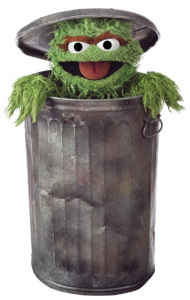Post contributed by Joan Hicken, Coordinator, Waste Reduction & Recycling Department
Auburn University’s Waste Reduction and Recycling Department (WRRD) is working to increase the university’s efforts to be more sustainable. WRRD manages all waste contracts on campus and provides waste and recycling services to the university community. The recycling program was established in 2005.
 We use Integrated Solid Waste Management (ISWM) techniques to manage our solid wastes. This is a strategic approach to sustainable waste management including activities like waste reduction, recycling and landfilling. Our materials and waste priorities are to reduce waste in the first place, and then, if waste is generated, recycle it before landfilling.
We use Integrated Solid Waste Management (ISWM) techniques to manage our solid wastes. This is a strategic approach to sustainable waste management including activities like waste reduction, recycling and landfilling. Our materials and waste priorities are to reduce waste in the first place, and then, if waste is generated, recycle it before landfilling.
Waste reduction, as the name implies, is reducing the amount of waste produced in the first place. It can take different forms, including avoiding single-use, single-serve and disposable items, and reusing or donating items.
Recycling converts wastes into reusable materials. After you put your paper, cardboard, plastic bottles, aluminum and steel cans into the appropriate recycling bin, it is collected, sent to recycling facilities and marketed to manufacturers; new products are created from recycled goods. When you purchase products made from recycled materials you are “closing the loop”.
The benefits of waste reduction and recycling include conserving natural resources, saving energy, preventing pollution, reducing greenhouse gas emissions, and reducing the amount of waste sent to landfills.
Landfills are still a common final disposal site for wastes. While modern landfills are engineered facilities designed, operated and monitored to ensure compliance with state and federal regulations, they do not provide for the best practices regarding waste management.
You Can Make a Difference! You may not be able to completely eliminate the garbage you produce, but there are things you can do to lessen your impacts. Check out these tips to simplify, share, reduce and conserve.




